Your people: A little reward can go a long way - The Noel D'Cunha Sunday Column
Employee reward and recognition for their accomplishments is a great way to make them feel valued, but coming up with a meaningful scheme, which is consistent and fair, is not simple and often requires a lot of thinking. Noel D’Cunha finds out what the challenges are
08 Aug 2021 | By Noel D'Cunha
Even before the Covid-19 pandemic hit, the print sector was bracing for a challenge. In December 2019, PrintWeek probed the printers on how the year 2019 was, and the reply was, “2019 was very tough for the Indian economy – uncertainty in business, insecure payments and unhealthy competition.”
In April 2020, as soon as the pandemic hit, we did another survey, and asked the printers – When will demand revive? 19% said - October 2020; 13% said - January 2021; 14% said - April 2021; 27% said - more than a year; 7% said - there will be no change in demand, and 20% said - this is the end. And when the businesses were adapting, from October 2020 to April 2021, the second wave of Covid-19 emerged. Demand in some areas of print dropped.
Three months later, as cases in India’s second wave of Covid-19 have been declining and vaccinations rising, many print companies are preparing and hoping to return to business as usual.
While many print companies that PrintWeek spoke with said business was down by 30-40% or closed in the initial months of lockdown, one of the things that came out was that these companies had retained their people, with pay-cuts. For the office works, the pandemic upended the concept of work-from-home; at the manufacturing site rigid health and safety protocols have been put in place to keep the workers safe.
But from an employer-employee perspective, there are new normals that are fraught with challenges. One of them is: how to keep the employees happy – a task any company’s HR team will have to handle. Improving employee morale can be done in a thoughtful way, through employee recognition programmes. It will motivate employees to continue to perform better while remaining loyal to their companies.
Disha Shah: Effects of pandemic on rewarding employees

The Covid 19 crisis has created a bizarre situation in everyone’s life. Covid has changed the way we look at life. Companies have been fire fighting multiple short term issues to keep the businesses running.
The pandemic has taken a toll on a lot of people: mentally, physically and financially. Organisations will have to undergo and are undergoing some restructuring of the programme to navigate through the ongoing crisis.
The aim should be to develop a plan which holistically overlooks the situation and leads to agility in solving business problems. Organisations may or may not have the need to restructure their entire plan, but in the short-term - adjusting targets, pay-outs, etc. Being more understanding and giving importance towards employee’s overall mental, physical health and well being. Be available and listen to them.
Haymarket Sac had its annual awards and we were happy to conduct the awards in the ongoing pandemic. Haymarket, as a company, has survived the pandemic and we are confident enough to sail through the ongoing crisis. All the due credit goes to each and every employee of the company who has taken accountability and responsibility and has been relentlessly working to achieve the company goals in the ongoing crisis.
Reward programme
At a time, when putting money in hand may be the most ideal thing, it has limited value – the employee can get used to the amount they are paid or resent as it may attract tax. Hence, to properly motivate staff, companies have to recognise and reward.
Happy employees who can grow within a business should be the aim of any HR team.
The blend of being happy and growing is important, says Parag Londhe, HR head at Informa Markets. “Only happy employees cannot be part of growing and sustainable growth and development.” Informa Markets in India is the country’s leading exhibition organiser that provides the industry with platforms that bring together buyers and sellers from around the world through a portfolio of events, content-led conferences and seminars.
Londhe adds, “When others are talking about attritions, at Informa Markets in India, we are achieving our KRAs on retention since 2016. It’s a conscious effort, with tactics. We firmly believe that human behaviour drives performance, so we create and maintain that kind of nature.”
Disha Shah, HR manager at Haymarketsac, publisher of PrintWeek and the popular auto magazine, Autocar India, says, an unhappy employee is an unsatisfied employee for many reasons – no job satisfaction, don’t feel empowered, don’t feel appreciated or valued at work, don’t find meaning in their work, and relations with co-workers is not so cordial. “The reasons can vary,” she says, adding, “The direct impact of an unhappy employee to the organisation is: lack of or less productivity and efficiency, high employee turnover rates, issues with customer satisfaction and retention, lower levels of profit margin to the organisation.”
Londhe however has a different point of view on the impact that an unhappy employee has on a company. “You tend to lose out on an opportunity in the space of ‘employer branding’, difficult to attract the talent if you have lost the image in the job market or campus – not only talent within the industry, but fresh blood from cross industries is also equally important.”
So, can a solid rewards programme help attract and retain talent? Shah is of the opinion that it can citing some methods: “An effective compensation strategy keeping in mind the organisational needs and goals considering the nature of the business along with the lifecycle of the employee in mind; performance-linked pay packages along with fixed pays and medical benefits; the clarity in role and responsibility the employee will undertake (no ambiguity); transparent processes and systems; within the company training opportunities; continuous feedback about employee performance, which can result in employee improvement; growth opportunities; wellness activities; spot appreciation and reward; flexibility in work culture; and award programme.”
Londhe says, any reward has to be timely. “Late cut may be a risky one.” He adds, “Different treatments to same or different people can create chaos, which is likely to take a toll on organisation’s efforts for years.”
On the other side, can sales incentive (for the sales team) be termed a team builder? Rewarding the end result as schemes don’t always take into account all of the steps that need to happen to get to the end goal – for example, speed of response, customer queries resolved, reduction in customer complaints – will ultimately result in increased sales.
Londhe explains, “Sales teams are incentivised to have perfect competition within the teams, individual incentives plus team incentive.” He, however, cautions that unless it is supported by a strong compensation and benefit, it will not work. “Incentive calculations should not be a function of finance, but should be supported by MD’s desk. If and only they are designed and communicated in a structured way, there will be a healthy work environment.”
Parag Londhe: What Informa did?

Mental health support was crucial in the last year. We declared work-from-home a week before the national lockdown. We were ready to shoot with Microsoft Teams. A journey from actual to virtual. Attendance was optional for all those staying near the office subject to carpooling and proximity to the office (walking distance). We distributed Arsenic Alban as a preventive measure, supported by fitness and Yoga sessions, again on Microsoft Teams.
Creating a programme
Setting up a recognition programme from scratch requires planning.
Shah, who joined Haymarketsac in December 2019, has been striving hard to implement a programme similar to what she had been doing at her previous employment.
To begin with, Shah says, the company needs to clarify its vision, be sure of the goals to be achieved and the results expected from the employees, thereby, aligning the programme with the company goals and culture and identify the purpose of introducing the programme. “Clearly define the criteria and characteristics of the programme and measure them on a continuous basis. The rewards and recognition programme should be advocated by the senior management.”
Similarly, as one print CEO, whose company has low attrition, says sales will not rise, or wastages will not reduce because of a gift on someone’s birthday. “Just as well, performance-based rewards does not guarantee loyalty,” he adds.
For this print CEO, who requested anonymity, reward and recognition should go hand in hand with organisational values. In his experience, “the most successful recognition strategies tend to be those that show appreciation for behaviours that align with organisational values”. Doing this brings a firm’s values to life and demonstrates to employees how they can show those core values through their work.
Shah adds, “Integrate the reward and recognition programme with performance management, measure, review and improve the programme to keep it alive.”
To this, Londhe says, schemes need to be role or function-specific as opposed to being based on individual jobs or company, which is an artificial entity, and does not run for long on individual contribution. “Informa in India works across 17 odd domains. We actually think big, but act small.” To which, Shah questions the point in recognising or incentivising commonality of behaviour across all functions, as they all have different contributions to make. “I’d say, identify key positive traits of each function and reward accordingly. For example, in operation, I look for efficiencies, if it’s customer service, it would be customer satisfaction, and for sales, increased profitability or repeat sales.”
These rewarding on a smaller basis is essential so that the employees can continually get into the habit of achieving.
Beyond that, Shah says, one should understand whether the employee is in sync with achieving the organisation goals as to what is expected out of them, which will help to measure the performance and reward and recognise them accordingly. “At Informa, we have created that feeling of greater than or equal to, for all the grades,” Londhe says. Shah, though, is of the opinion that in addition, it would be ideal to create a well-rounded and engaging scheme after finding out what the employees want. “Maybe your employees want a traditional long service reward, as well as a pat on the back.”
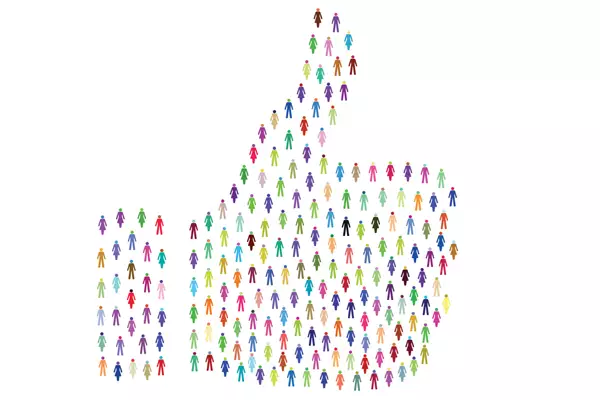
Being fair
The benefits offered to employees often depend on their grade, location or occupation. Employers need to explain the different benefits available and be able to justify them.
Fairness does not mean equality in an organisation. What one person needs and what someone else needs to reach the same outcome may be very different. Fairness is not necessarily about treating people the same. “Fairness to me is, knowing and understanding the employee, listening to him, trying and solving his issues and balancing it out, giving clarity with proper feedback and communication,” says Shah.
Hence the key to any successful business or relation is communication. “The message intended to be communicated should clearly reach the receiver by the giver,” Shah emphasises. She cites examples of annual surveys, which can be conducted. “Focus on asking close-ended questions. Keep the survey questions neutral. Keep a balanced set of answer choices. Don’t ask for two things at once. Keep the questions different from each other.”
In short, Shah says, use the annual surveys as an opportunity to understand employee’s thought processes, improve employee engagement and improve overall business performance.
Your people
Putting up a reward programme is not simple and requires a lot of thinking. “But it is not impossible to create one if we receive continuous feedback from the employees and understand their thought processes and what they expect from the organisation, keeping in mind company and employee goals.”
As Narendra Paruchuri, chairman of Pragati Group, says, one of the most important parts of the company is its team of people. Everybody can buy a machine, and everybody can buy technology. But it is important to know what your people think about it to take it forward.
“When a company grows or expands into multiple locations, it’s the people who run it. It is not possible for me to go and look at every location every day. For example, none of us from Hyderabad could go to Noida during the lockdown, but Ananth Kumar (director, Pragati Pack) is handling it very well. So, essentially, it is the people who will make the company, not the other way around,” he adds.
Paruchuri concludes: “How many people think that Pragati is their surname and put it on their shoulder and carry it. I am very happy that we have people who think that the Pragati identity belongs to them, and they carry it forward.”


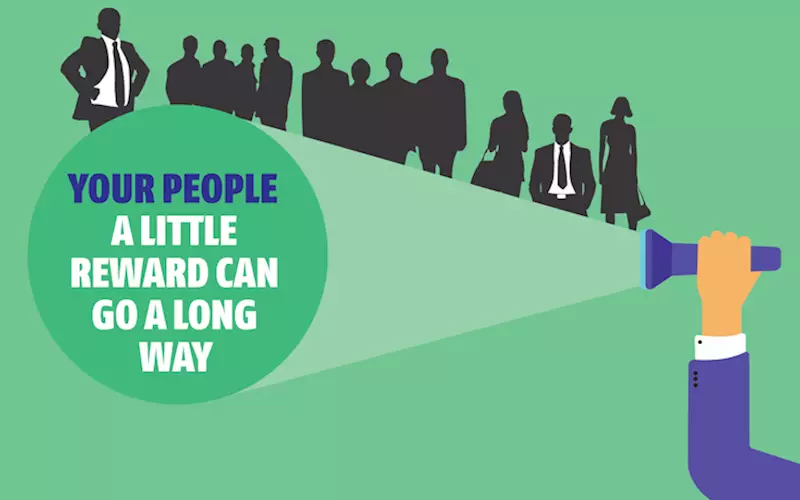
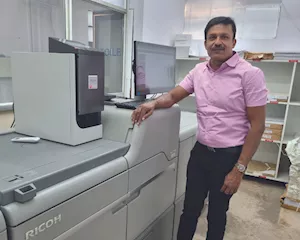
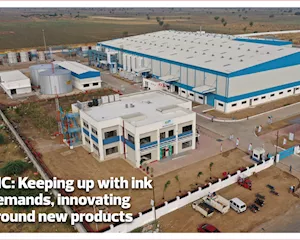
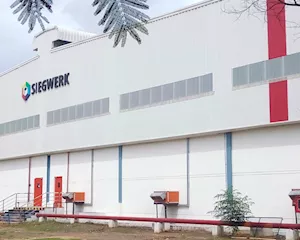
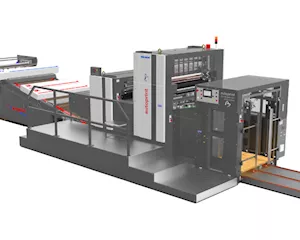







 See All
See All